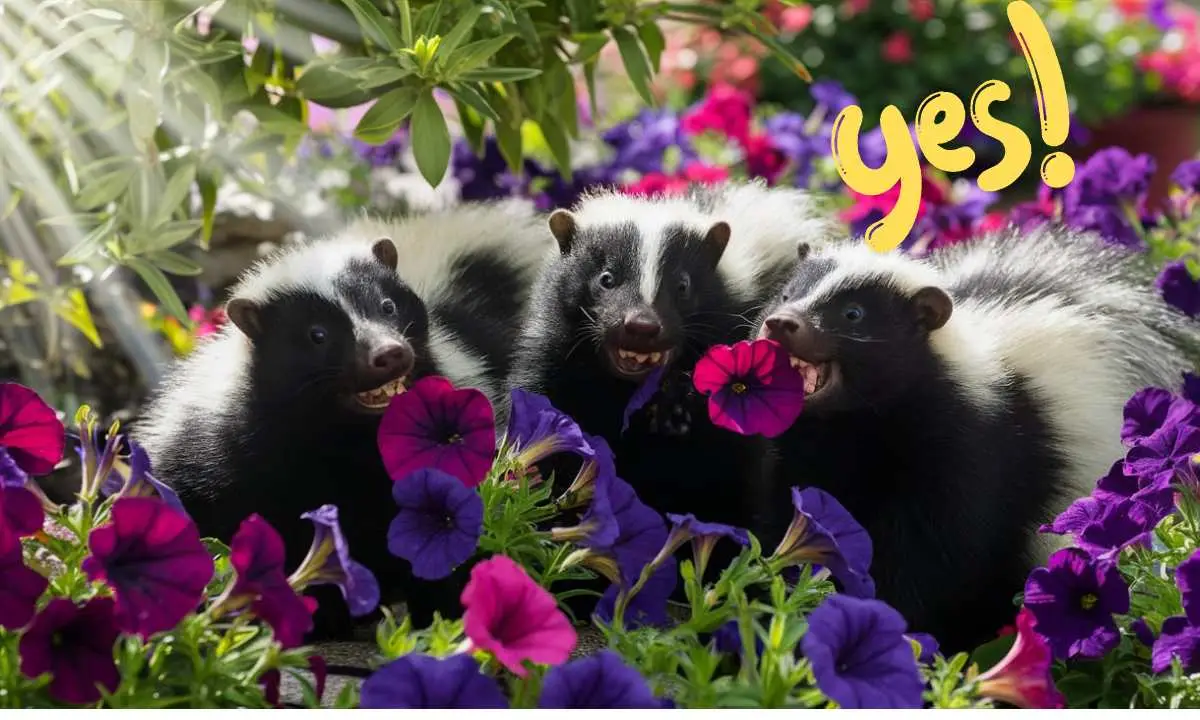Do Skunks Eat Petunias? Safe Your Garden
Last updated on August 11th, 2024 at 07:31 am
Yes, skunks do eat petunias! With my background in skunk care and wildlife study, I’ve seen firsthand how these animals can impact gardens. Want to know why your petunias might be disappearing? Keep reading to find out how skunks are involved and what steps you can take to protect your plants.
Petunias And Skunks
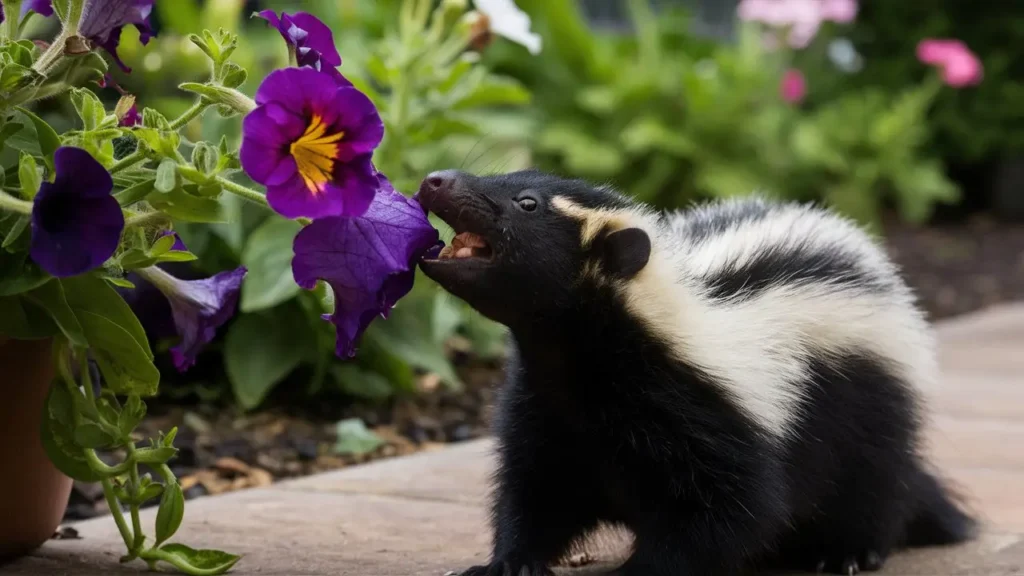
Gardeners often spot skunks near their flower beds. This leads to a curious question: do these creatures fancy petunias? Known for their striking blooms, petunias are a favorite in many gardens. Skunks, with their distinct black and white fur, are nocturnal creatures that forage at night. Understanding the relationship between petunias and skunks is important for gardeners. It helps protect the beauty of their floral displays.
Do Skunks Eat Petunias?
Skunks are opportunistic eaters with a varied diet. They usually prefer insects, grubs, and small rodents. But they can munch on plant matter too. Although skunks do not seek out petunias specifically, they may end up damaging these flowers. Here’s why:
- Searching for insects: Skunks might dig through petunias while hunting for bugs.
- Accidental harm: While walking through gardens, skunks might step on petunias.
- Non-preferred food: If food is scarce, skunks might nibble on petunias out of desperation.
However, petunias are not a major part of a skunk’s diet. They are more likely to be collateral damage during a skunk’s nightly activities. It’s rare to see skunks feasting on these flowers as a primary food source.
Factors Affecting Skunk Behavior Towards Petunias
Several factors can influence why a skunk may wander into a garden full of petunias:
| Factor | Influence on Skunk Behavior |
|---|---|
| Food Scarcity | Skunks may turn to plants like petunias during food shortages. |
| Garden Design | Dense floral arrangements might attract skunks looking for shelter. |
| Presence of Insects | A high insect population in petunias can draw skunks to the area. |
Understanding these factors can help gardeners take steps to deter skunks. A well-designed garden, for instance, can reduce the chances of a skunk visit. Keeping insect populations in check is also vital. By considering these elements, gardeners can enjoy their petunias without unwanted guests.
Preventing Skunks From Eating Petunias
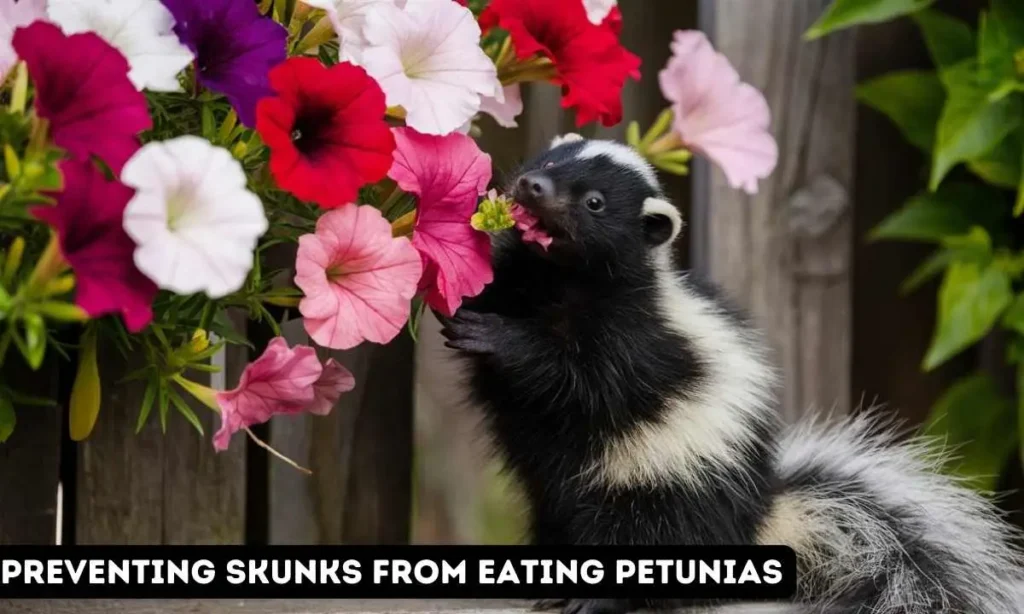
Skunks have a nose for delicious snacks, and your petunias might be on their menu. These black and white creatures may look cute, but they can wreak havoc on your garden overnight. Fear not, for there are effective ways to keep your petunias safe without harming the skunks. Let’s explore some clever strategies to prevent these furry visitors from feasting on your flowers.
Natural Deterrents
Keeping skunks away from petunias naturally is safe for both the environment and the animals. Start with these tips:
- Odor repellents: Skunks dislike certain smells. Sprinkle substances like citrus peels, or spray a mixture of water and hot pepper around your plants.
- Predator urine: This might sound odd, but using urine from predators like foxes can scare skunks away. It’s available in garden stores.
- Install a fence: A mesh fence buried a foot deep and standing several feet high can keep skunks at bay. Make sure it’s sturdy!
Another method is to create a less inviting habitat. Skunks love to hide in woodpiles and debris. Clear these from around your garden to discourage skunks from settling in. Also, consider the table below for a quick guide on plants that repel skunks:
| Plant | How It Helps |
|---|---|
| Marigolds | These flowers give off a smell that skunks dislike. |
| Lavender | The strong fragrance can help mask petunia scents. |
| Citronella | Often used in mosquito repellents, it also deters skunks. |
Man-made Deterrents
Sometimes, nature needs a helping hand. Here are some man-made solutions:
- Motion-activated lights: Skunks are nocturnal and shy away from bright lights. Installing these can startle and deter them.
- Automatic sprinklers: Skunks don’t like surprises. A sudden spray of water will encourage them to scurry away.
- Secure trash bins: Skunks forage for food in the trash. Ensure your bins are tightly sealed to avoid attracting them.
Creating physical barriers can also work wonders. Use mesh or plastic covers to shield your petunias at night. Consider the effectiveness of various deterrents in the table below:
| Deterrent Type | Effectiveness |
|---|---|
| Motion-activated lights | High |
| Automatic sprinklers | Medium to High |
| Sealed trash bins | High |
Gardening Tips
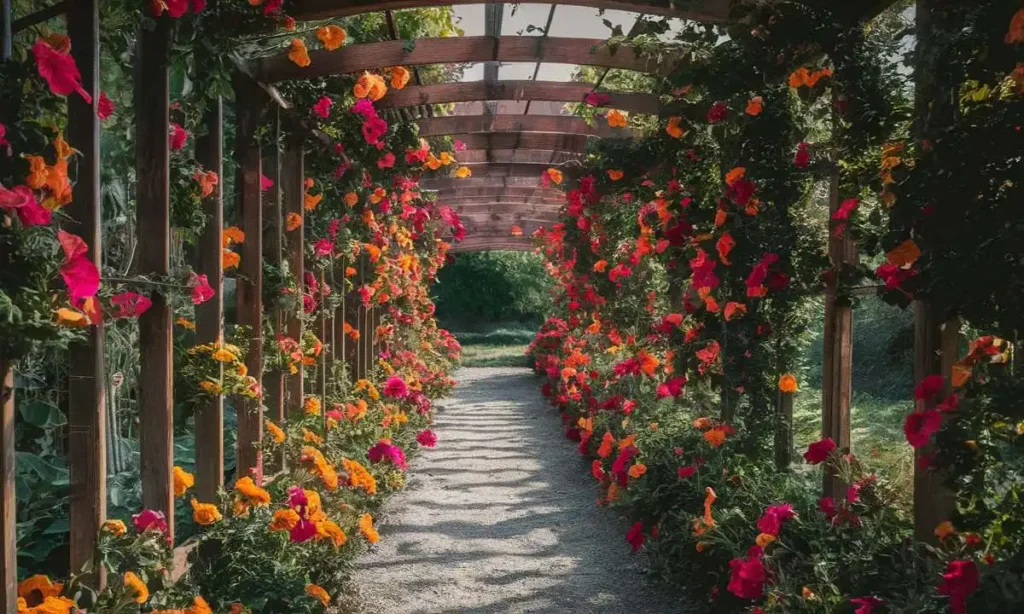
Many garden lovers enjoy the vibrant colors of petunias. But, they often ask, “Do skunks eat petunias?” The answer is not straightforward. Skunks are omnivores, meaning they eat plants and animals. They might nibble on your petunias. This blog post shares gardening tips to keep petunias safe and create harmony in your garden.
Choosing Skunk-resistant Plants
Protecting petunias starts with planting skunk-resistant flora. Skunks tend to avoid certain plants due to their texture, taste, or smell. Here’s a list of plants that can deter skunks:
- Marigolds: Their pungent smell keeps skunks at bay.
- Lavender: The strong fragrance is not skunk-friendly.
- Citronella: The lemony scent is a natural repellent.
Consider these additional strategies:
- Use gravel or rough mulch around petunias. Skunks dislike walking on these surfaces.
- Install low fencing. It can discourage skunks from entering your garden.
Below is a table of common skunk-resistant plants and their characteristics:
| Plant Name | Characteristic | Effectiveness |
|---|---|---|
| Marigolds | Strong odor | High |
| Lavender | Lingering fragrance | Medium |
| Citronella | Lemony scent | Medium |
By integrating these plants, you can create a garden that is less attractive to skunks and safer for your petunias.
Creating A Skunk-friendly Environment
Creating a skunk-friendly environment is a balance. It means giving skunks space without sacrificing your petunias. Here’s how:
- Leave water sources and food scraps away from your garden. Skunks will find sustenance elsewhere.
- Use bright lights to deter skunks at night. They prefer dark areas.
- Plant a buffer zone of skunk-resistant plants around your petunias.
Try these extra measures too:
- Seal gaps under structures. It prevents skunks from making homes nearby.
- Use motion-activated sprinklers. They can startle and scare skunks away.
Remember, harmony in the garden comes from respecting wildlife and protecting plants. By following these tips, both your petunias and the local skunks can thrive in their respective spaces.
Legal Considerations
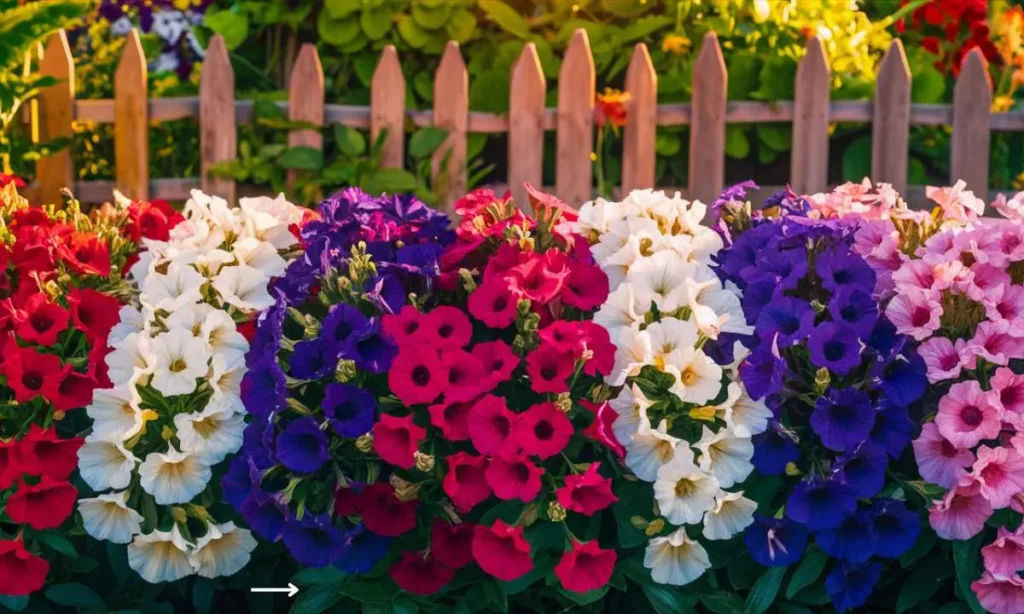
Many gardeners ask, do skunks eat petunias? Indeed, these striped creatures may nibble on your beloved blooms. Protecting petunias requires understanding not only skunk habits but also legal considerations. Laws vary by location, so it’s essential to know the regulations in your area. This guide outlines the legalities and ethical practices for managing skunks and safeguarding your garden.
Laws Regarding Skunk Control
Before taking action against skunks in your garden, know the laws that apply. Each state and country has specific regulations regarding wildlife control. These laws exist to protect both the animals and people. Here are key points to consider:
- Protected Species: Some skunks may be protected under local wildlife laws.
- Relocation: In many areas, relocating skunks without a permit is illegal.
- Trapping: If trapping is legal, you must use humane traps and check them regularly.
Below is a table summarizing the skunk control methods and their legal status in a generic form. Always check with local authorities for the most accurate information.
| Control Method | Legal Status | Remarks |
|---|---|---|
| Chemical Repellents | Varies | It may require special permits |
| Live Trapping | Often Allowed | It may require special permits |
| Relocation | Restricted | Requires authorization |
Remember, failure to comply with these laws can result in fines or other legal consequences.
Ethical Approaches To Wildlife Management
When managing skunks, ethical considerations are as important as legal ones. Ethical wildlife management respects the creature’s well-being while protecting your petunias. Here are some humane approaches:
- Non-lethal Measures: Use methods like fencing, repellents, or noise devices to deter skunks without harm.
- Habitat Modification: Remove food sources and shelter that attract skunks to your garden.
- Educational Outreach: Learn about skunk behavior to avoid unintentional enticement.
These methods promote coexistence rather than conflict. They help maintain a balanced ecosystem while keeping your garden safe. Ethical practices ensure you act responsibly and considerately toward wildlife. This balance fosters a healthy, vibrant garden and a harmonious outdoor space.
Frequently Asked Questions
Deer, rabbits, and slugs are common culprits for eating petunias at night. Install fencing or use repellents to protect your flowers.
Pest infestations, such as slugs, snails, caterpillars, and budworms, commonly eat petunia flowers. These pests can cause noticeable damage overnight. Regularly inspect your petunias and employ appropriate control measures to protect them.
To deter skunks from flower pots, sprinkle a mix of cayenne pepper and water around them. Install motion-activated lights or sprinklers for added deterrence. Ensure pots are free of food scraps that may attract skunks.
Conclusion
Protecting your petunias from skunks is a blend of vigilance and understanding. These critters may not be petunia’s top predators, but they can nibble on them occasionally. Embrace preventative measures like secure fencing or natural repellents to keep your garden safe.
Remember, a healthy coexistence with wildlife adds balance to our ecosystems. Keep your petunias vibrant and your local skunks at bay with these tips.

